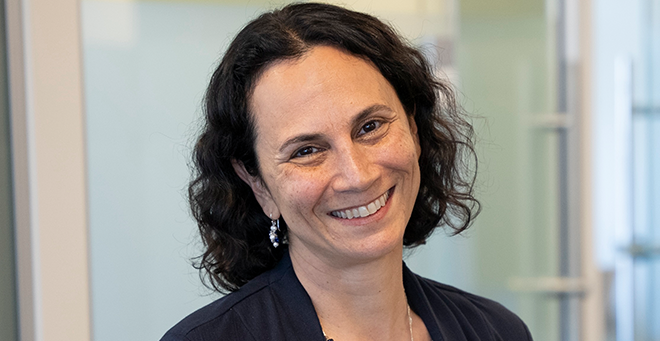
The program provides support to pediatric primary care and integrated behavioral health clinicians to address the treatment gap in early childhood mental health for children ages 5 and under.
A new statewide program developed by UMass Chan Medical School is helping address a treatment gap in early childhood mental health issues for children ages 5 and under.
The Massachusetts Child Psychiatry Access Program (MCPAP) for Early Childhood provides a support service hotline, training, support and guidance to primary care pediatricians in the interim between when early intervention services are no longer available and before a child enrolls in kindergarten.
The program is a collaboration between UMass Chan, UMass Memorial Health and the Massachusetts Department of Public Health.
“This isn’t just offering consultations; this is ongoing training and education to frontline primary care clinicians,” said Yael Dvir, MD, associate professor of psychiatry and pediatrics, vice chair and director of child and adolescent psychiatry, and medical director for MCPAP for Early Childhood. “During those calls with the behavioral health clinicians trained in early childhood, it’s not just about giving answers. It’s about exploring each case together and building up knowledge, so as things might become more complicated, the pediatricians can work through it and see that these issues keep changing and evolving.”
At a glance |
|---|
|
The original MCPAP program was established in 2004 based on a pilot program conducted by the UMass Chan Department of Psychiatry. Child psychiatry consultation programs based on the MCPAP model are now available in 49 states.
MCPAP for Early Childhood has three sites—Boston-North, Boston-South, and Central-Western, which is located at UMass Chan—that provide coverage across the state. Each site has a behavioral health clinician, licensed social worker or child psychologist on site.
Led by Dr. Dvir, the Central-Western team includes M. Carolina Clark, LISCW, and Kara Lindquist, MD’16, assistant professor of psychiatry. The team serves as the statewide expert hub for MCPAP for Early Childhood. The program protocol was developed from a pilot program that was launched at UMass Chan in early 2022.

The new service provides quick access via phone for pediatric primary care and integrated behavioral health clinicians to MCPAP consultants. Some of the issues behavioral health clinicians address include attachment issues, internalizing and externalizing disorders, and trauma.
Consultations are with MCPAP behavioral health clinicians and psychologists who received special training from the Central-Western team in early childhood. These consultations help pediatricians address behavioral health issues in young children, including offering resources, conducting both in-person assessments and virtual appointments with families, and recommending additional evaluation and treatment.
Marisa Matsudaira, LICSW, pediatric mental health care access coordinator at the Massachusetts Department of Public Health, said mental health issues are one of the more frequent causes of distress to families of young children, and the program’s approach to consider the whole family is important to early intervention work.
“Children’s behavior and mental health are part of this rapidly rising tide that is causing stress to families and causing families to have trouble functioning. MCPAP’s expertise in mental health and the team that they’ve put together for early childhood mental health is phenomenal. By really looking at early relational health and considering the parent and child as a dyad together that you can’t really separate, and spreading that framework to pediatric practices, is so important,” Matsudaira said.
